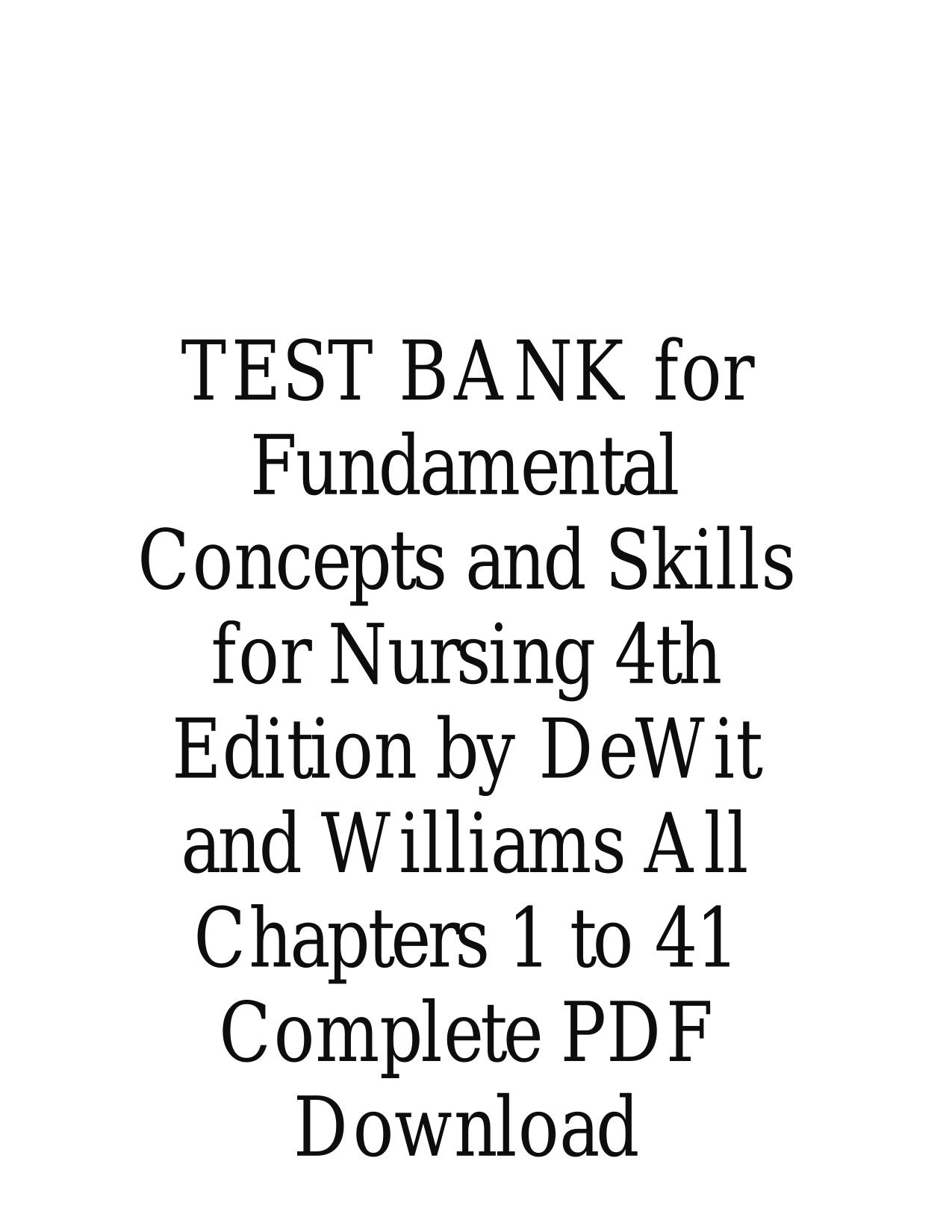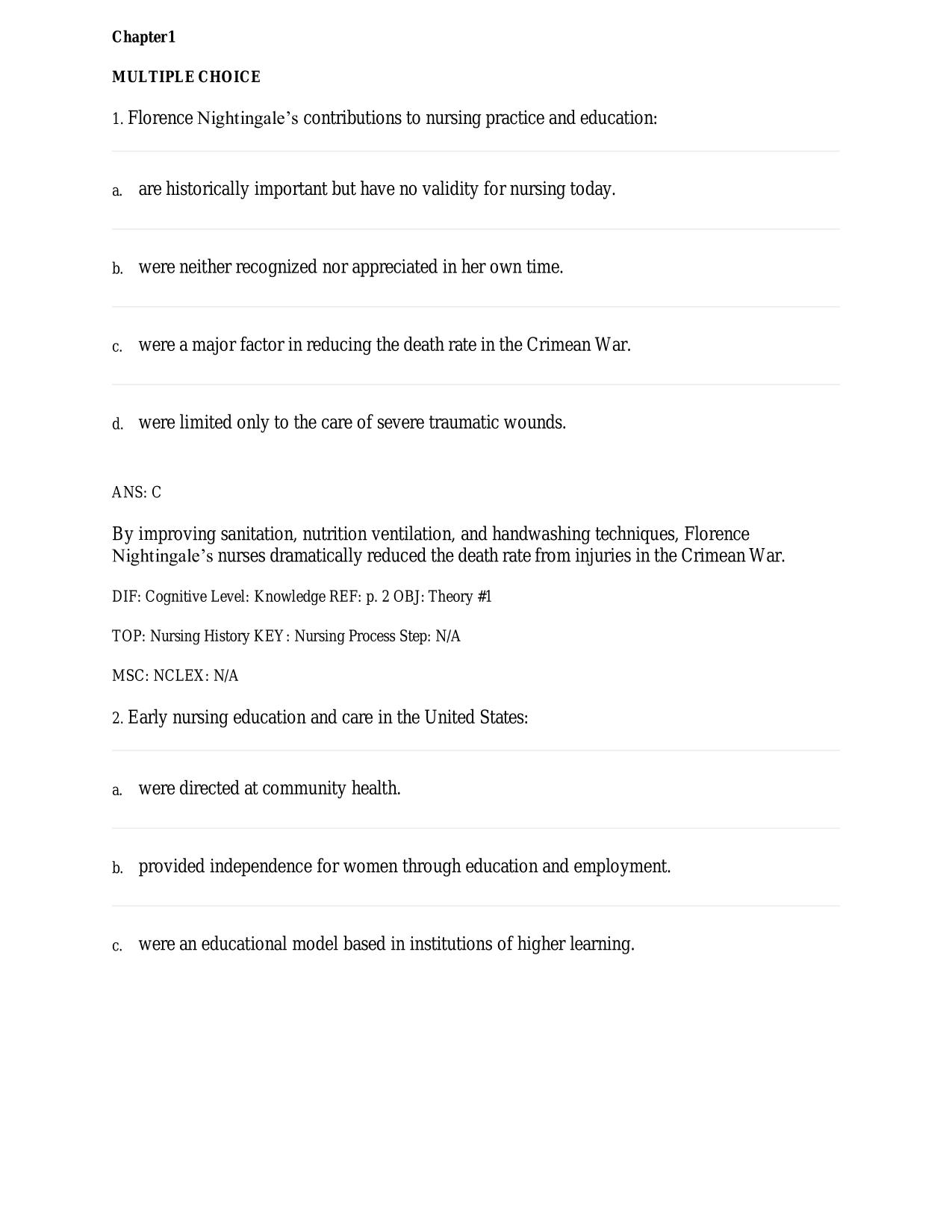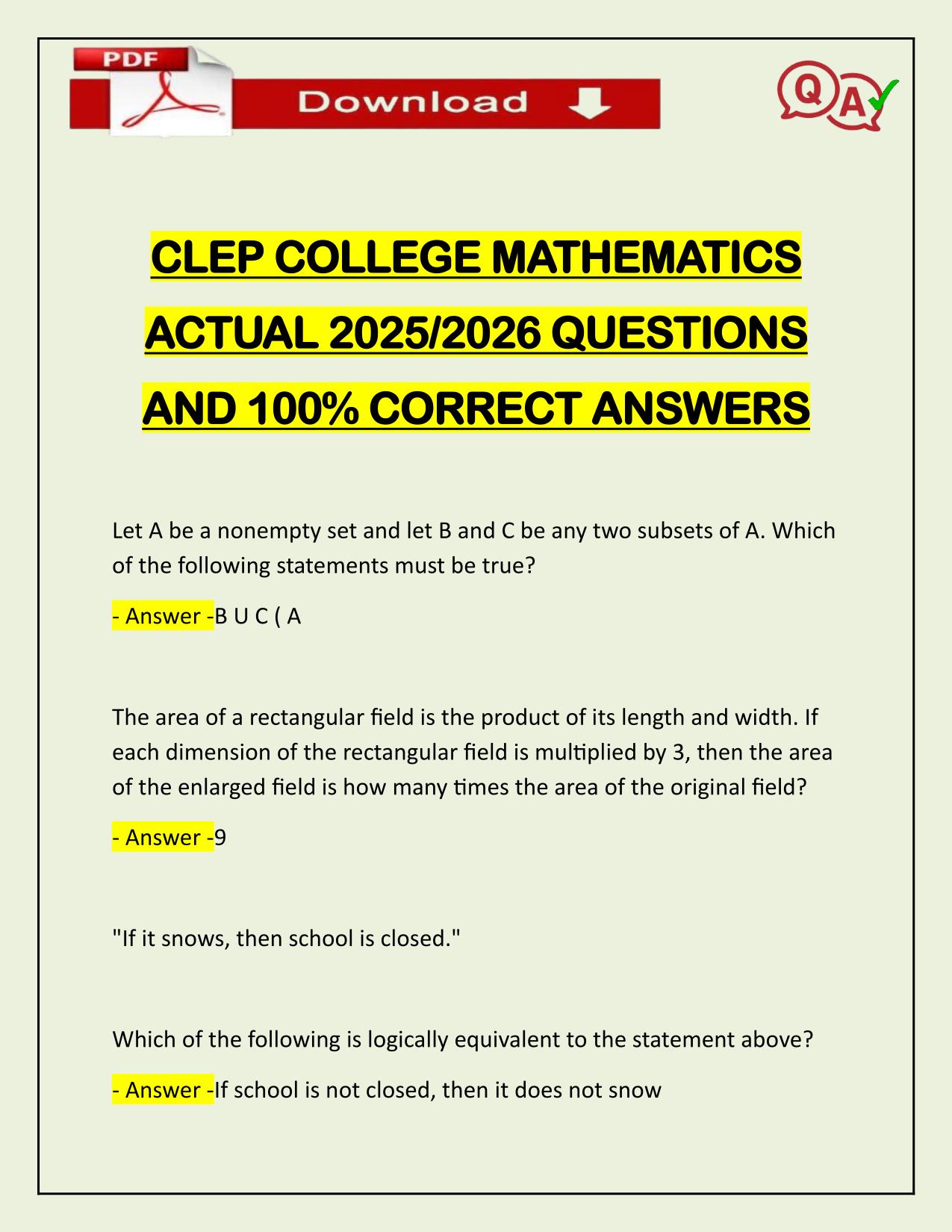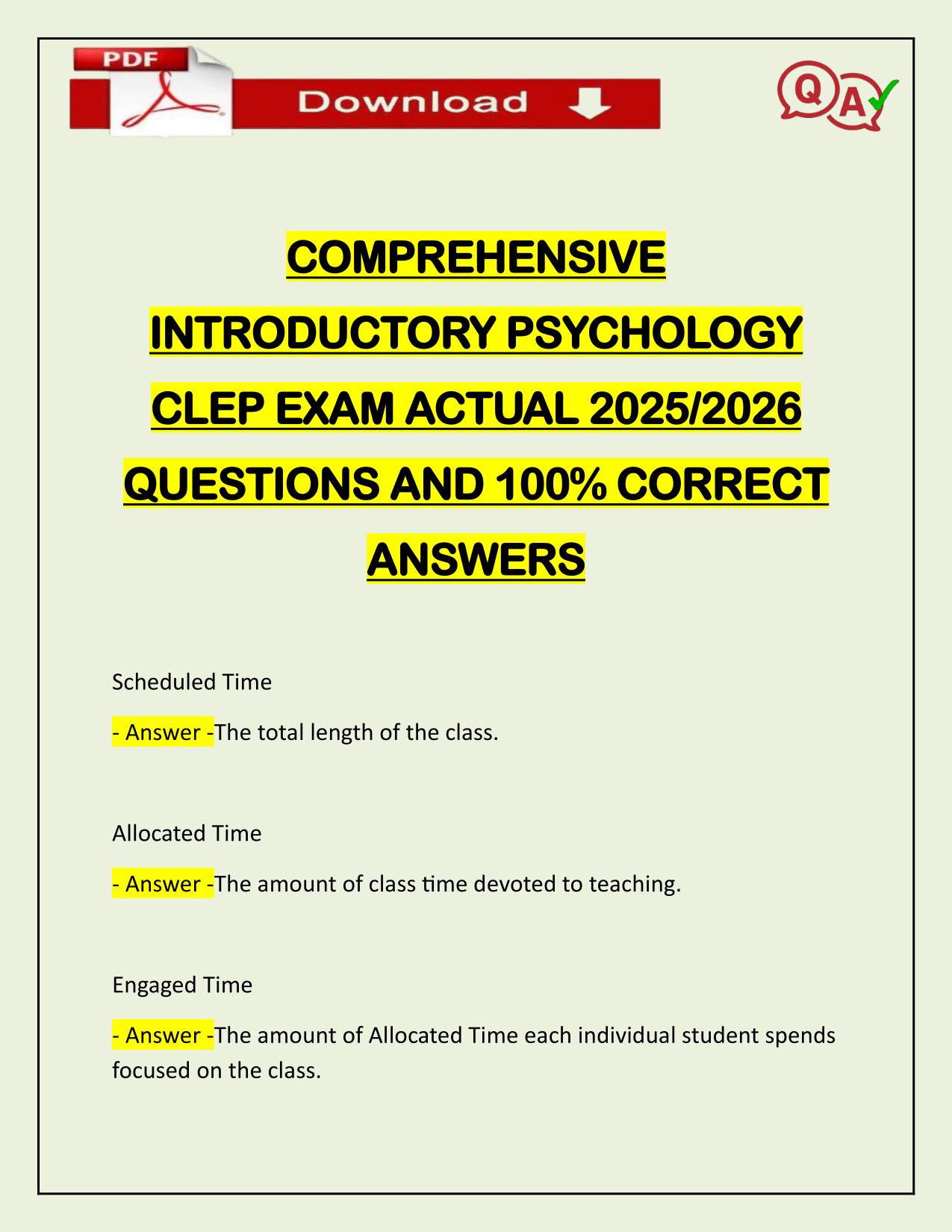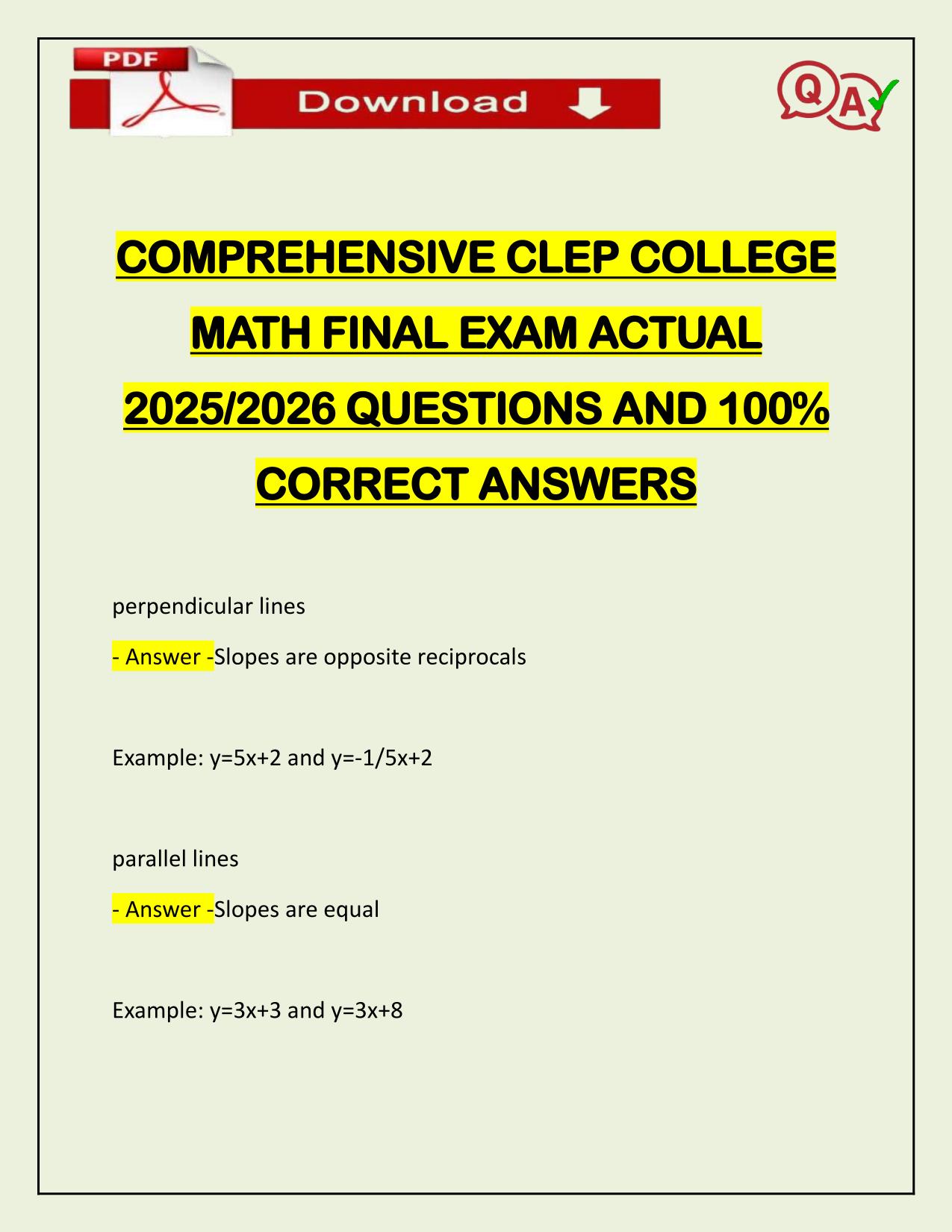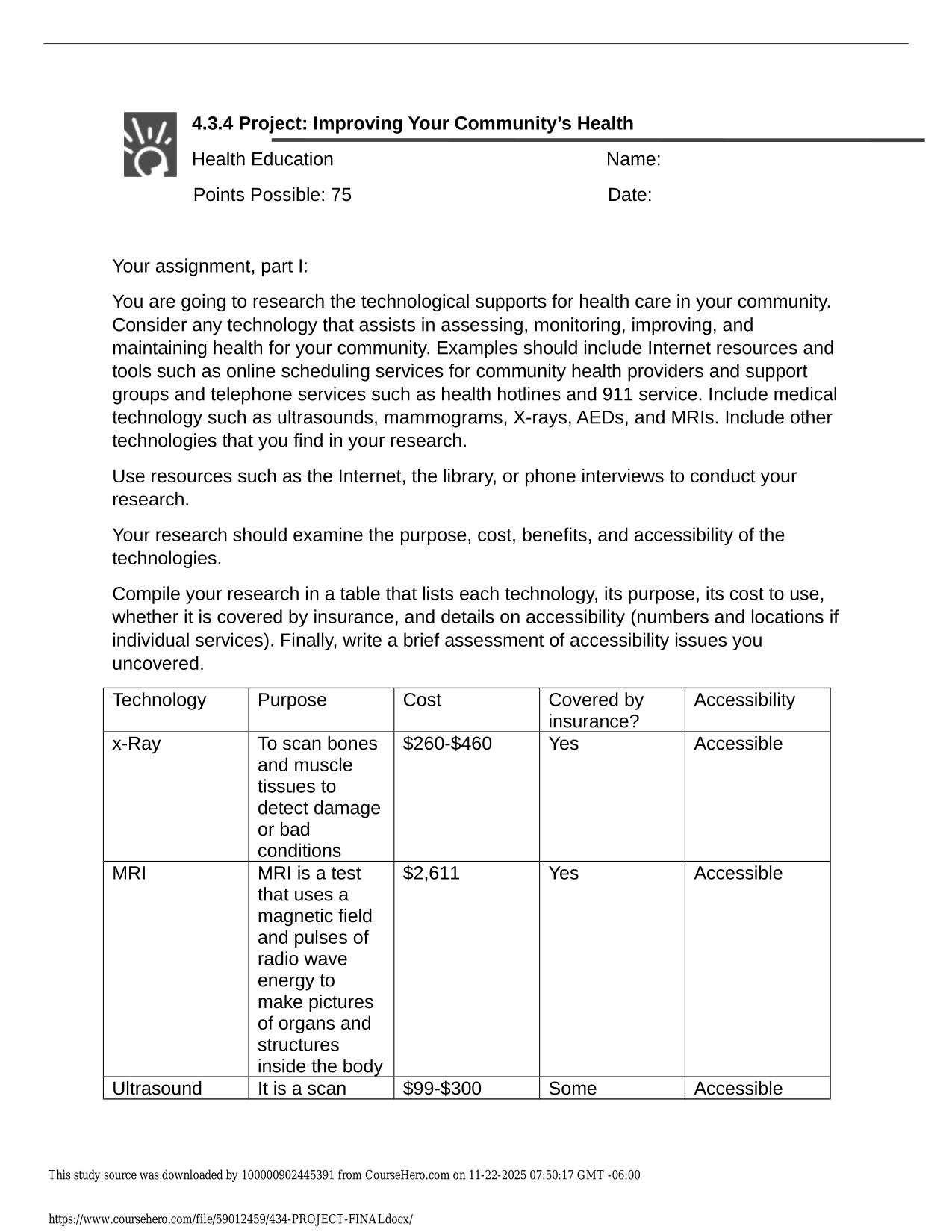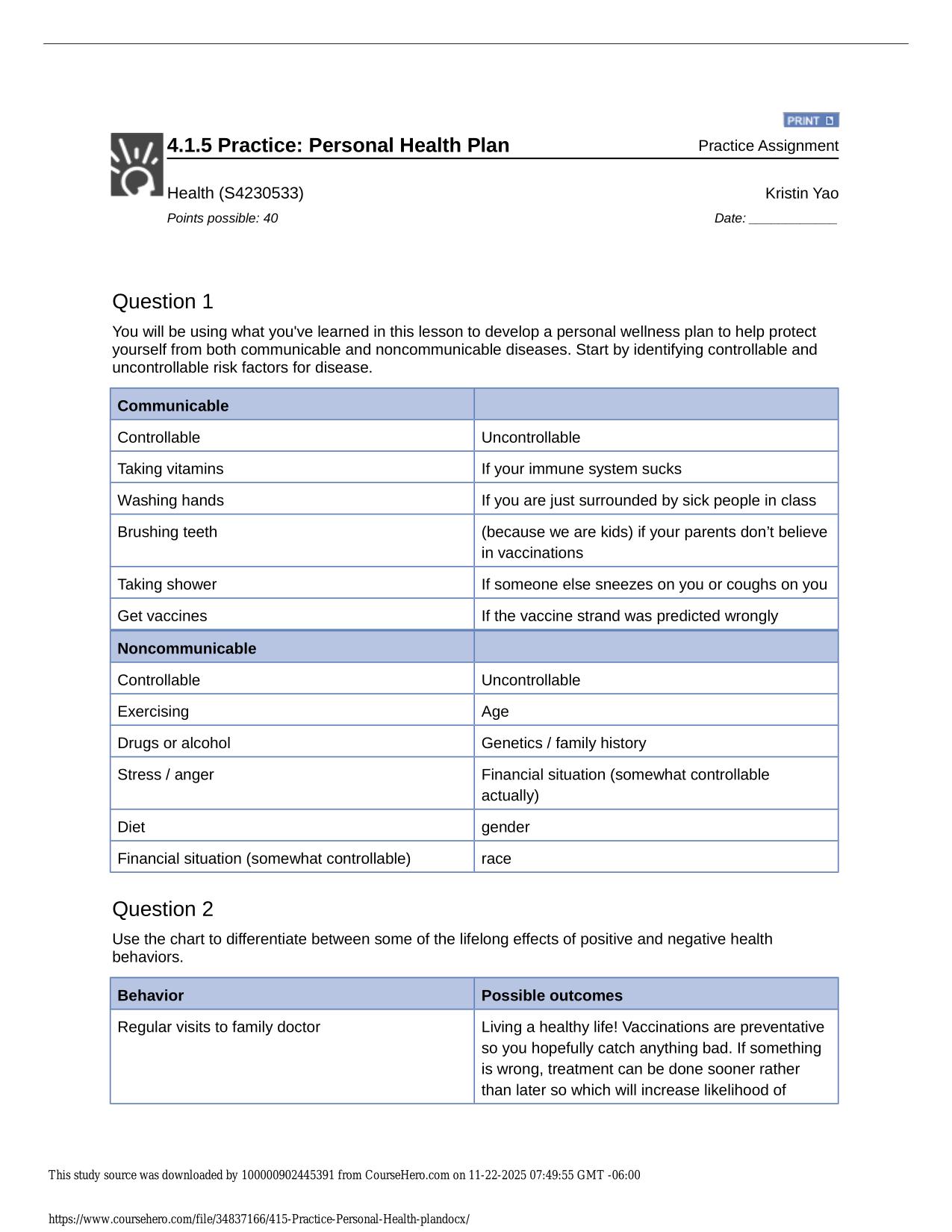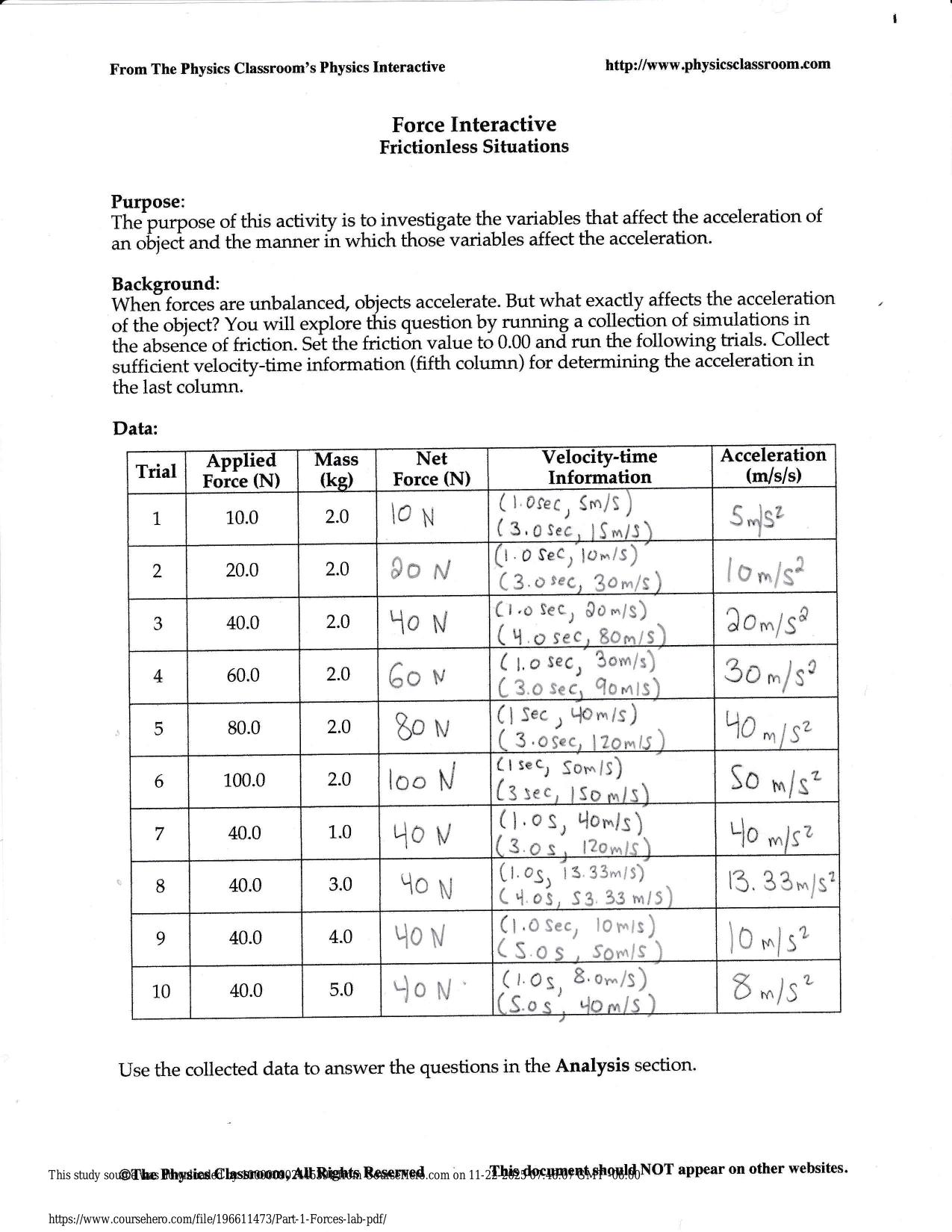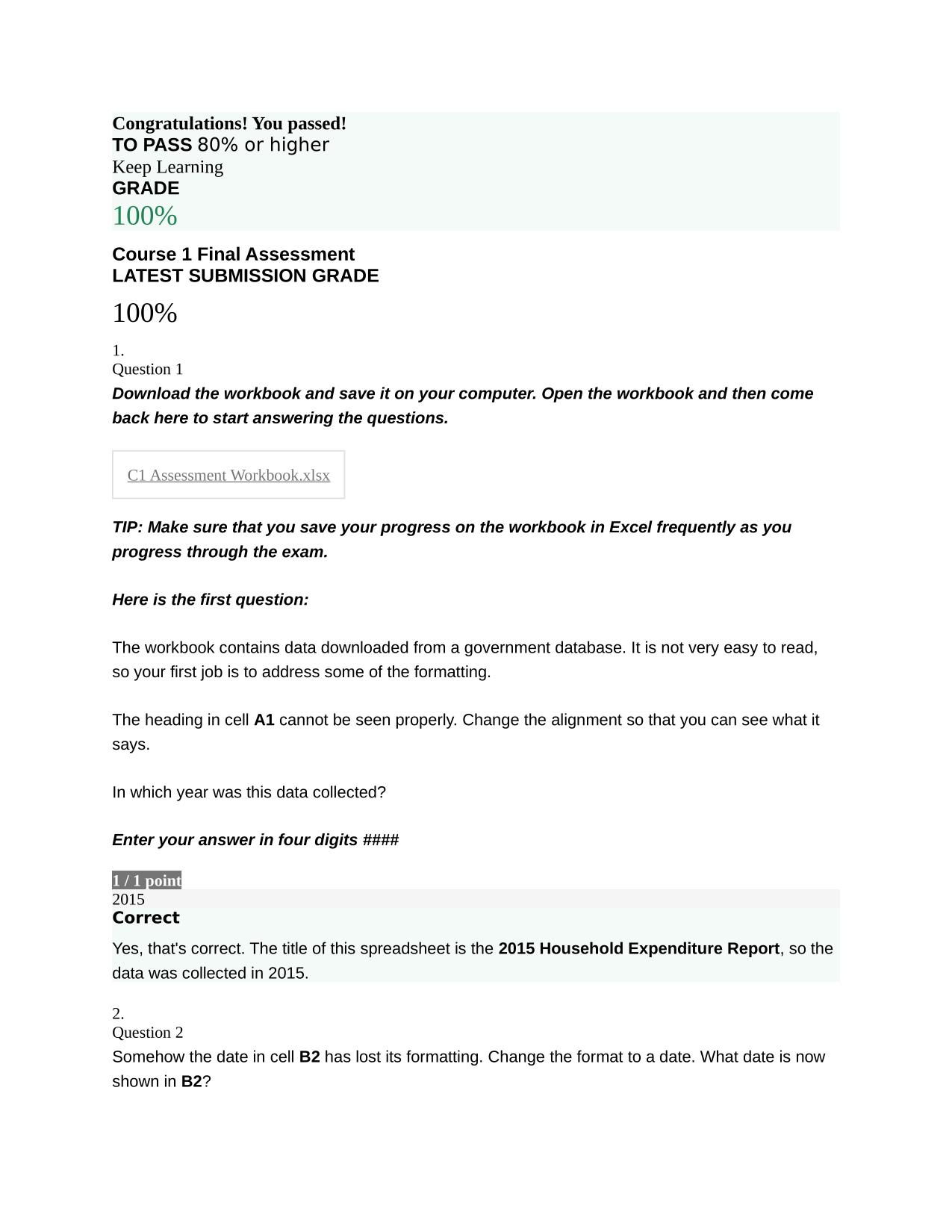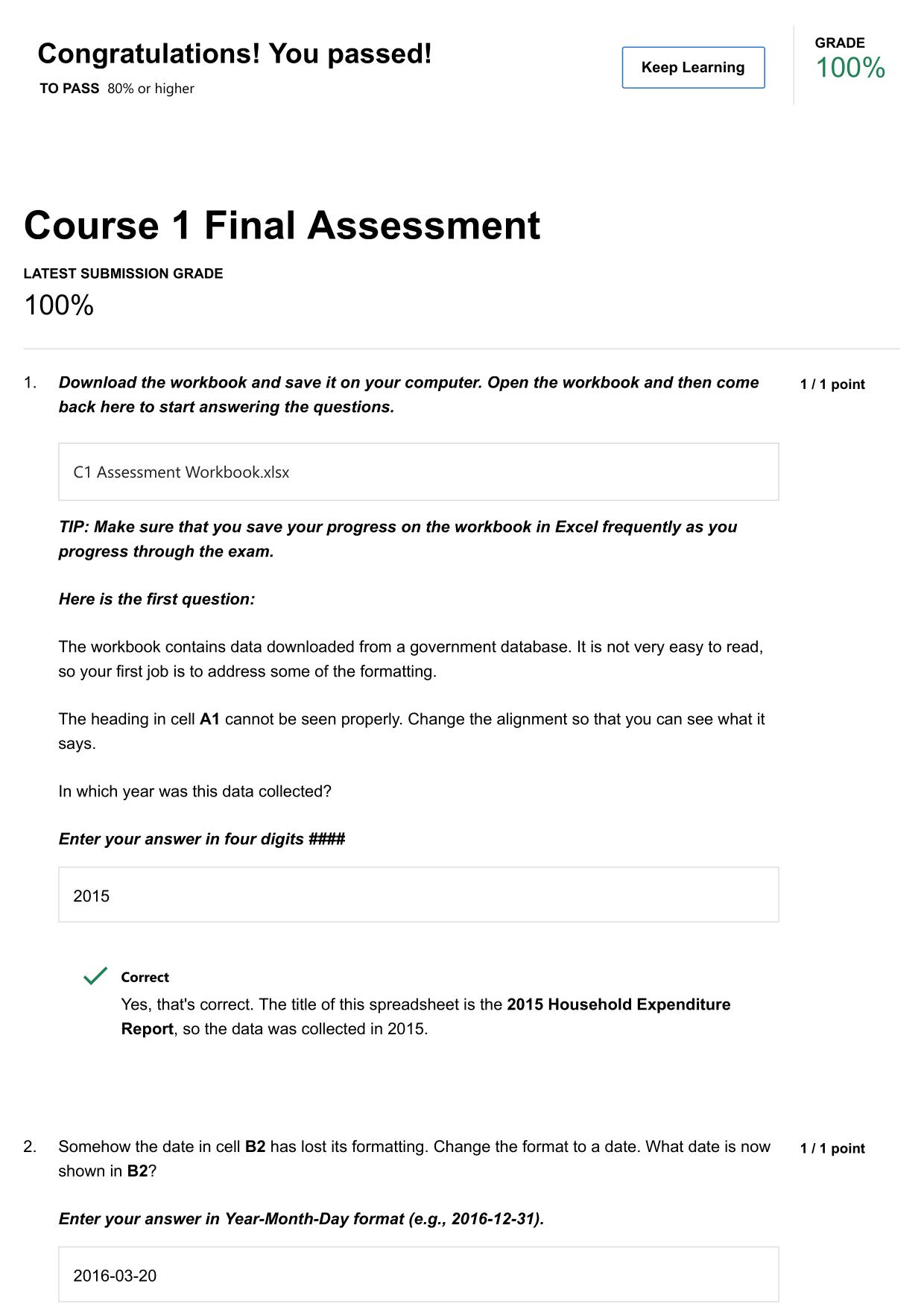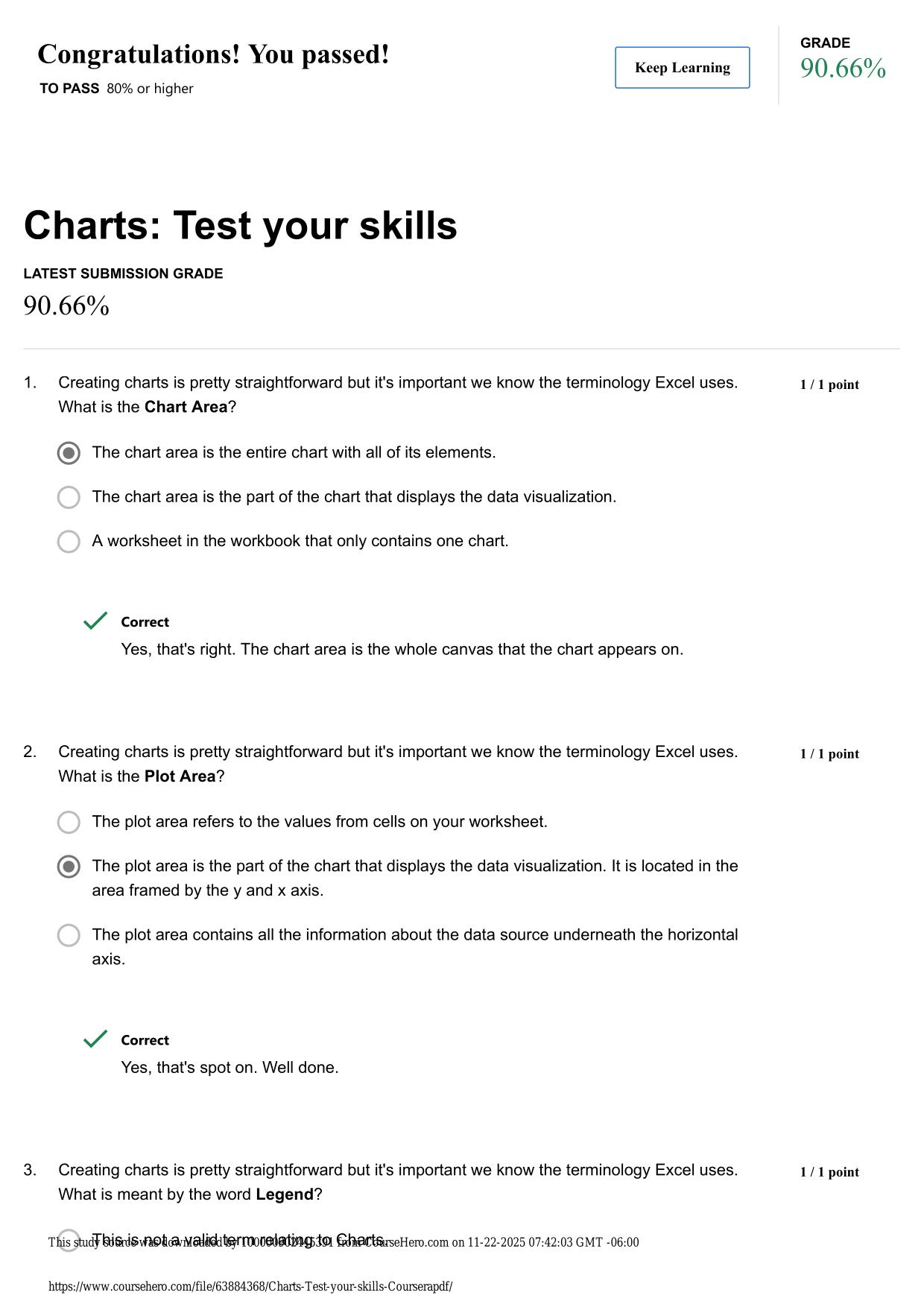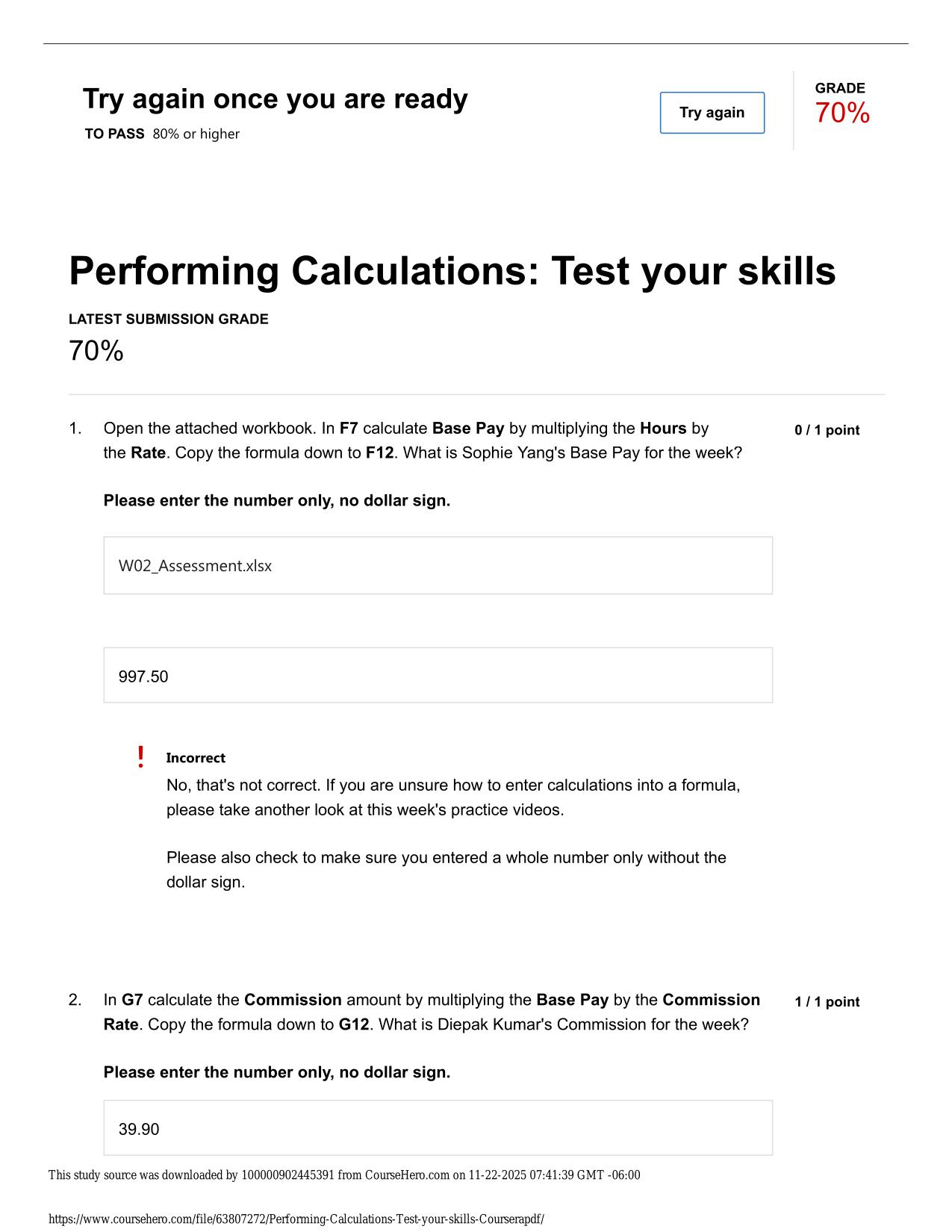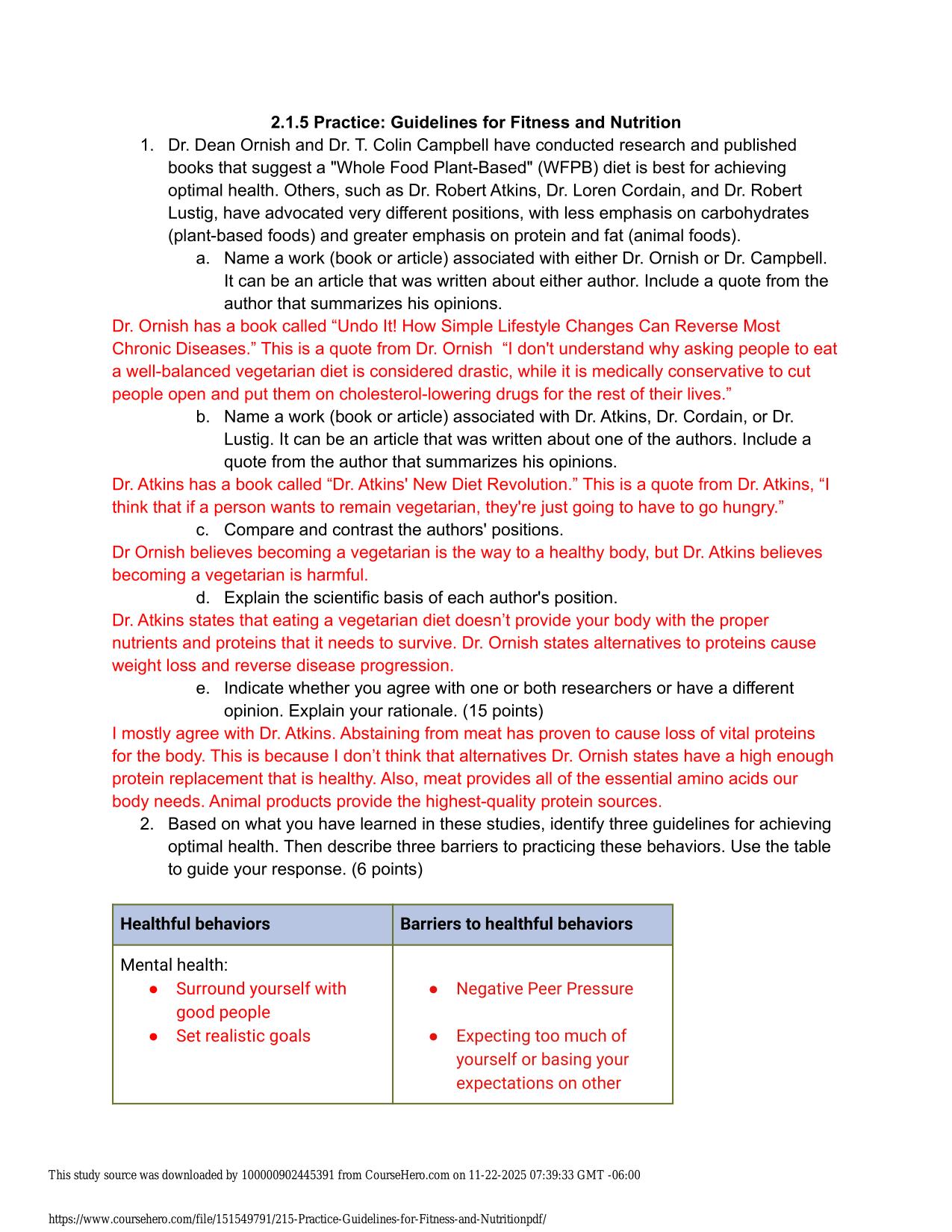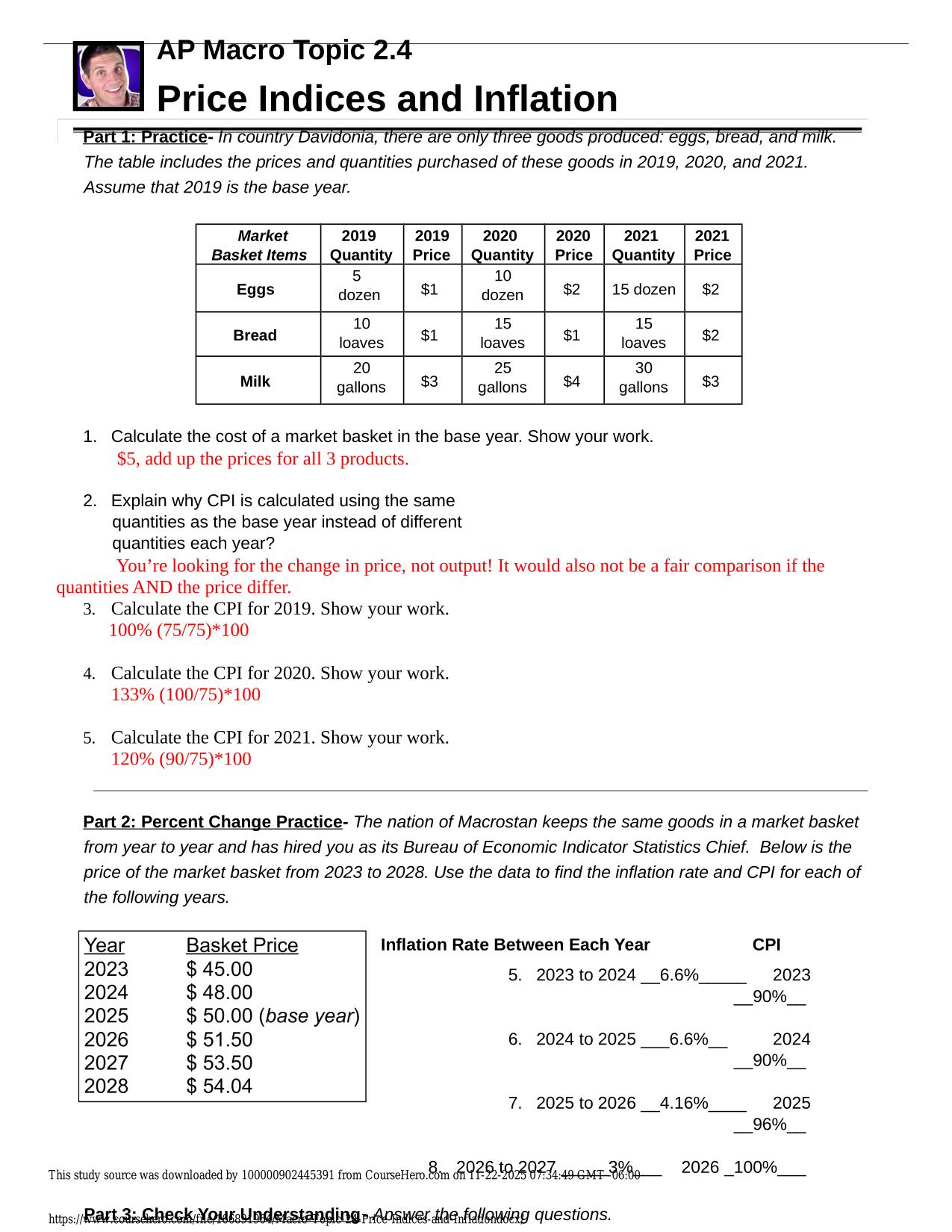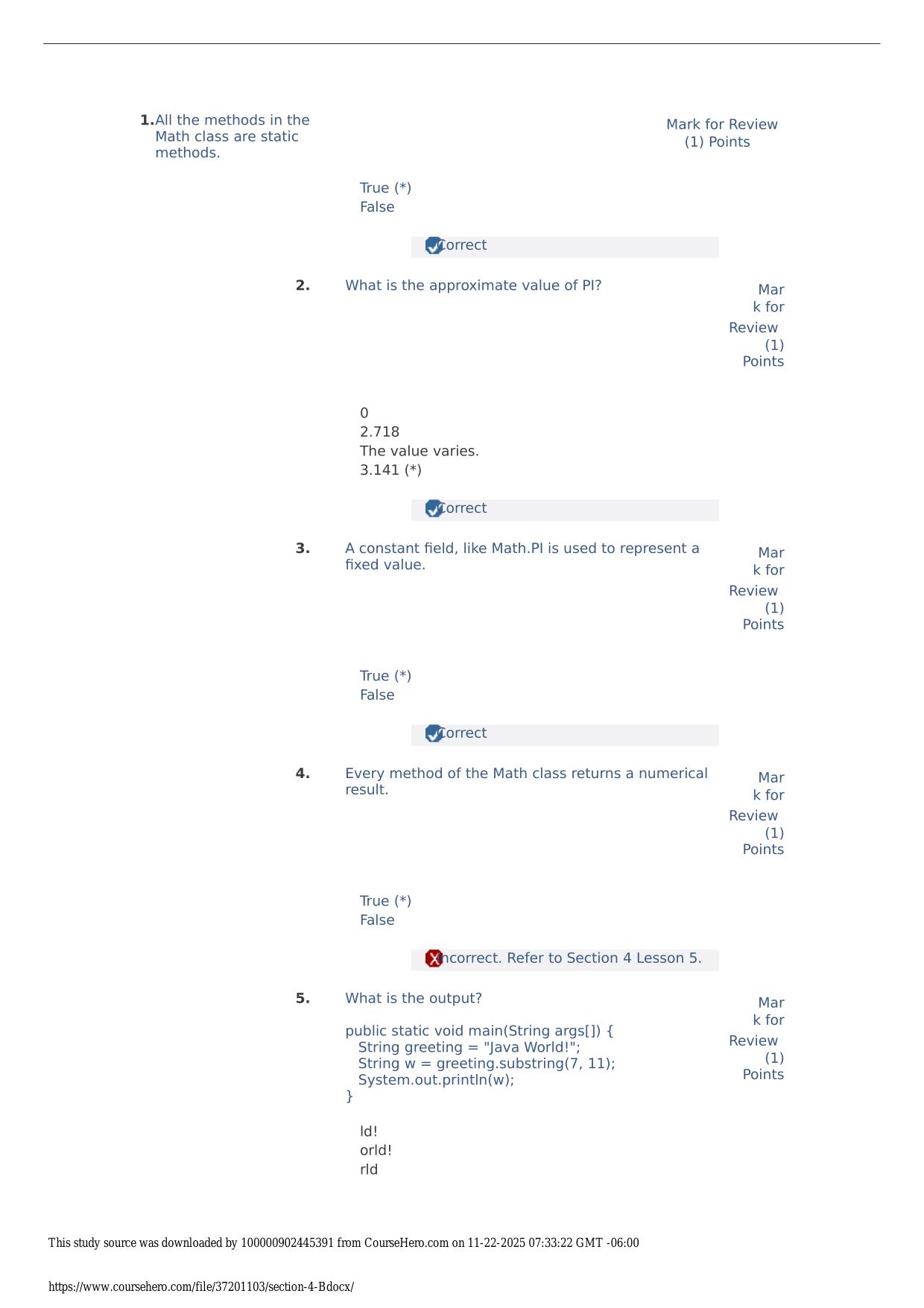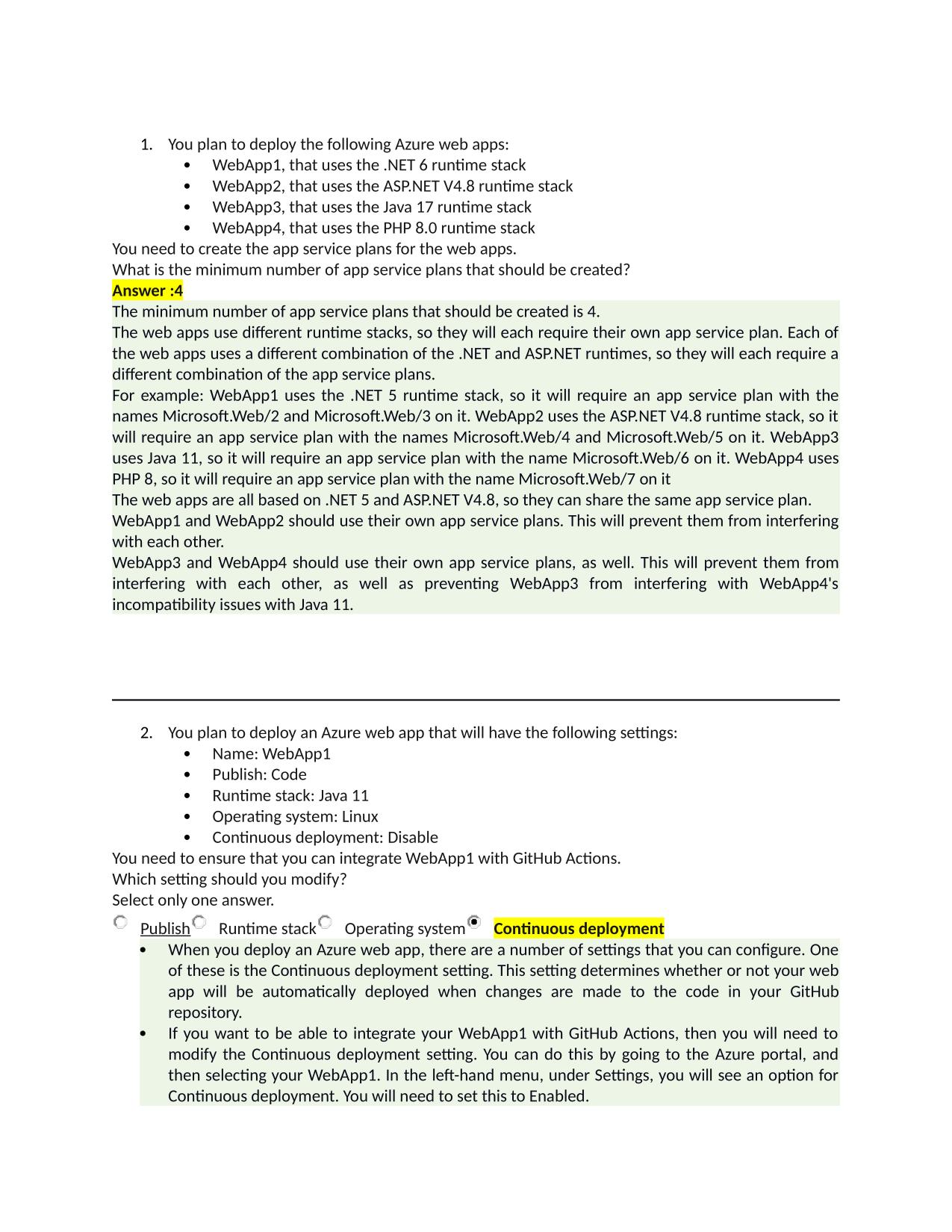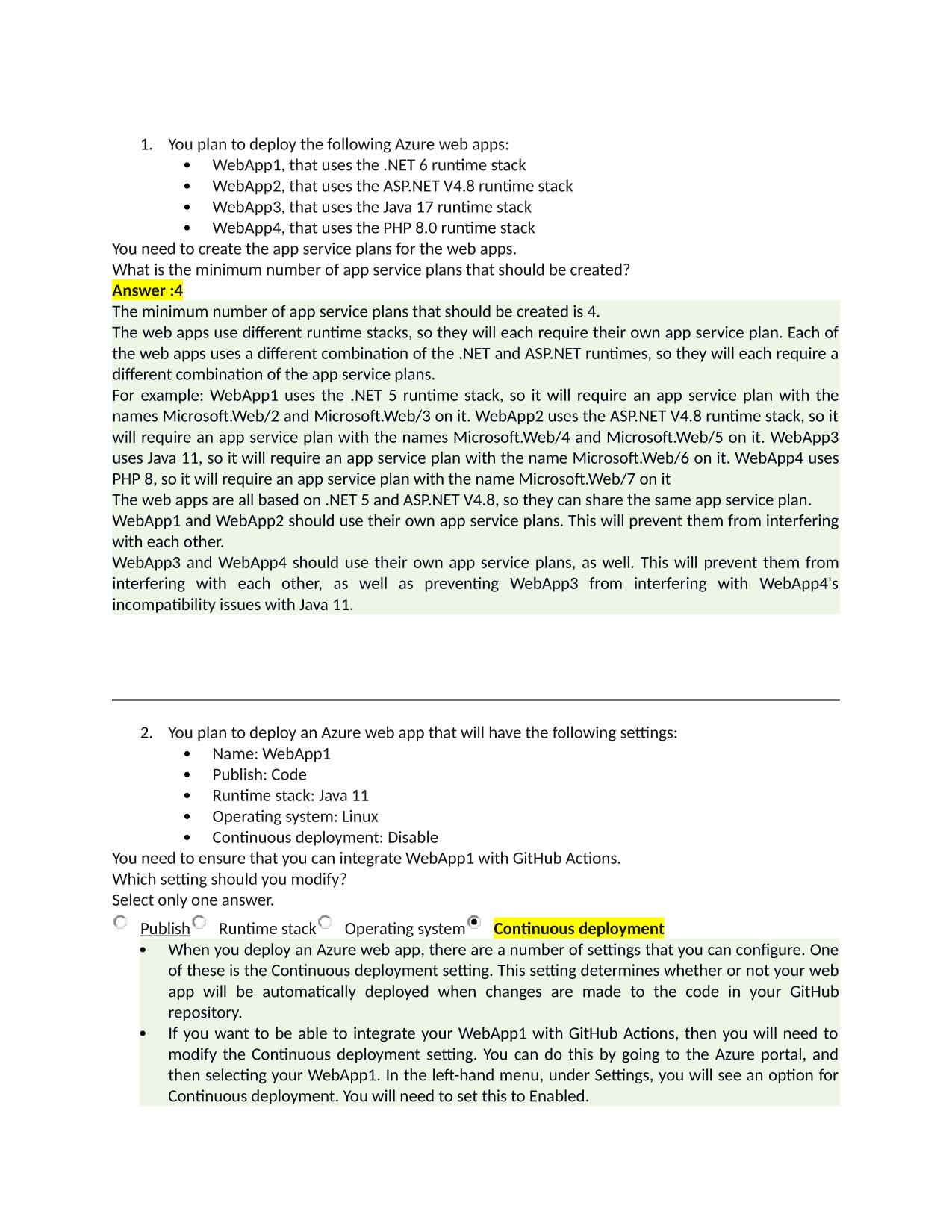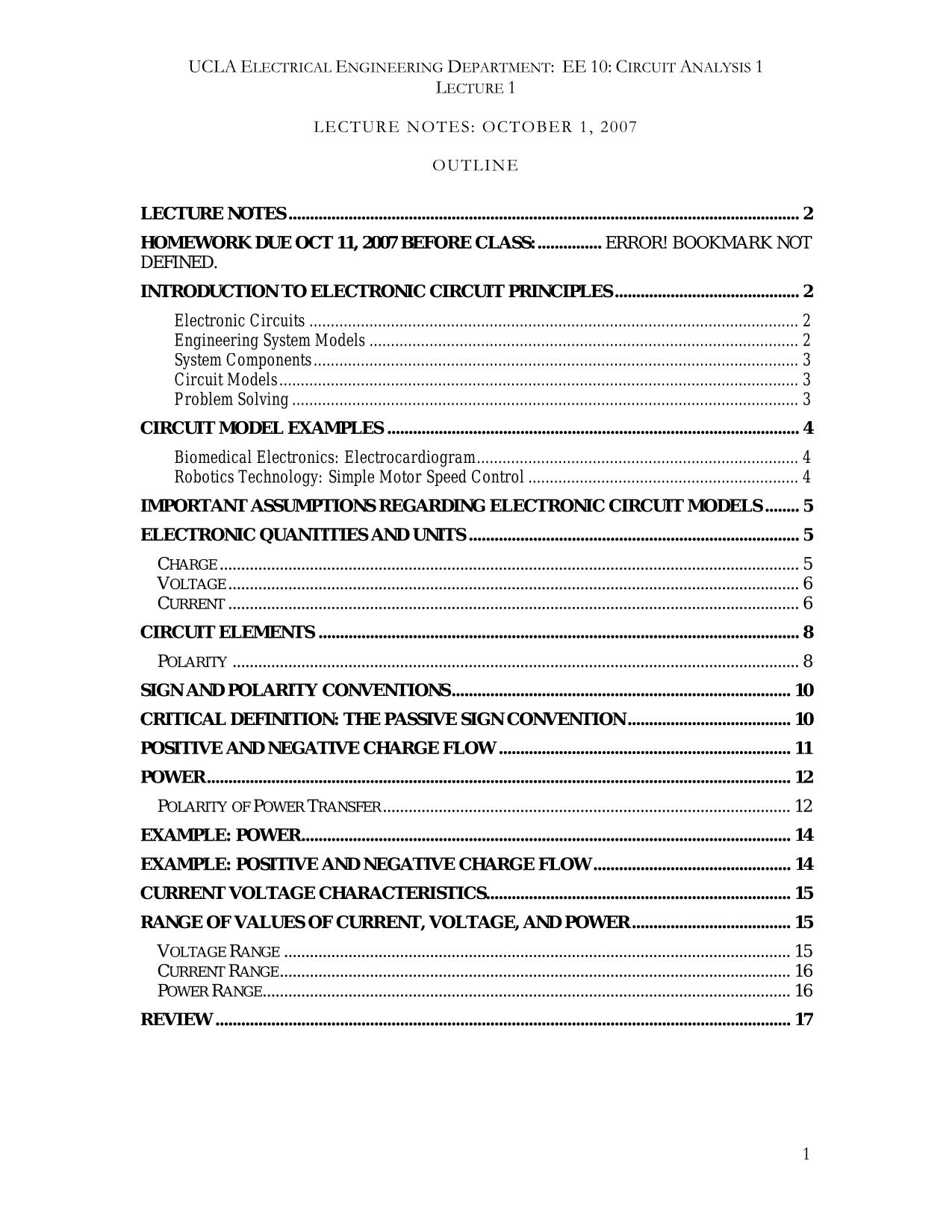TEST BANK for Fundamental Concepts and Skills for Nursing 4th Edition by DeWit and Williams All Chapters 1 to 41 ISBN-10: 1337407585, ISBN-13: 9781337407588
Course:
Concepts for Nursing
Institution:
Concepts for Nursing
TEST BANK for Fundamental Concepts and Skills for Nursing 4th Edition by DeWit and Williams All Chapters 1 to 41 ISBN-10: 1337407585, ISBN-13: 9781337407588 Chapter1 MULTIPLE CHOICE 1. Florence Nightingale’s contributions to nursing practice and edu...
After purchase, you get:
✅ Instant PDF Download
✅ Verified answer explanations
✅ Refund if not Satisfied
✅ Prepared for 2025/2026 test cycle
Overview
The document highlights key principles that repeatedly appear on exam sessions, reinforcing crucial knowledge. You're always focusing on high-yield content that has the biggest impact on your score. This strategic emphasis is perfect for busy learners who need to make the most of limited study time. Many students find this focus helps them prioritize their efforts where they'll get the greatest return.
Who Is This For?
Useful for individuals re-entering test preparation after a long break, especially those aiming for BANK for Fundamental Concepts and Skills for Nursing 4th Edition by DeWit and Williams All Chapters 1 to 41 ISBN-10: 1337407585, ISBN-13: 9781337407588 certification. The material helps bridge knowledge gaps efficiently. Many returning students appreciate how it helps them get back up to speed quickly. Great for candidates pursuing higher exam scores, aiming to boost accuracy, speed, and comprehension in Concepts for Nursing. Many users have seen noticeable score improvements after consistent practice. The focused training helps develop both knowledge and test-taking skills.
Related Keywords
Detailed Study Description
Frequently Asked Questions
Document Information
| Uploaded on: | November 1, 2025 |
| Last updated: | November 17, 2025 |
| Number of pages: | 876 |
| Written in: | 2025/2026 |
| Type: | Exam (elaborations) |
| Contains: | Questions & Answers |
| Tags: | TEST BANK for Fundamental Concepts and Skills for Nursing 4th Edition by DeWit and Williams All Chapters 1 to 41 ISBN-10: 1337407585, ISBN-13: 9781337407588 Chapter1 MULTIPLE CHOICE 1. Florence Nightingale’s contributions to nursing practice and education: a. are historically important but have no validity for nursing today. b. were neither recognized nor appreciated in her own time. c. were a major factor in reducing the death rate in the Crimean War. d. were limited only to the care of severe traumatic wounds. ANS: C By improving sanitation, nutrition ventilation, and handwashing techniques, Florence Nightingale’s nurses dramatically reduced the death rate from injuries in the Crimean War. DIF: Cognitive Level: Knowledge REF: p. 2 OBJ: Theory #1 TOP: Nursing History KEY: Nursing Process Step: N/A MSC: NCLEX: N/A 2. Early nursing education and care in the United States: a. were directed at community health. b. provided independence for women through education and employment. c. were an educational model based in institutions o |
Seller Information

AdelineJean
User Reviews (0)
Exam (Elaborations)
$17.00
Add to Cart
100% satisfaction guarantee
Refund Upon dissatisfaction
Immediately available after purchase
Available in Both online and PDF
$17.00
| 0 sold
Discover More resources
Inside The Document
TEST BANK for Fundamental Concepts and Skills for Nursing 4th Edition by DeWit and Williams All Chapters 1 to 41 Complete PDF Download Chapter1 MULTIPLE CHOICE 1. Florence Nightingale’s contributions to nursing practice and education: a. are historically important but have no validity for nursing today. b. were neither recognized nor appreciated in her own time. c. were a major factor in reducing the death rate in the Crimean War. d. were limited only to the care of severe traumatic wounds. ANS: C By improving sanitation, nutrition ventilation, and handwashing techniques, Florence Nightingale’s nurses dramatically reduced the death rate from injuries in the Crimean War. DIF: Cognitive Level: Knowledge REF: p. 2 OBJ: Theory #1 TOP: Nursing History KEY: Nursing Process Step: N/A MSC: NCLEX: N/A 2. Early nursing education and care in the United States: a. were directed at community health. b. provided independence for women through education and employment. c. were an educational model based in institutions of higher learning. d. have continued to be entirely focused on hospital nursing. ANS: B Because of the influence of early nursing leaders, nursing education became more formalized through apprenticeships in Nightingale schools that offered independence to women through education and employment. DIF: Cognitive Level: Knowledge REF: p. 2 OBJ: Theory #4 TOP: Nursing History KEY: Nursing Process Step: N/A MSC: NCLEX: N/A 3. In order to fulfill the common goals defined by nursing theorists (promote wellness, prevent illness, facilitate coping, and restore health), the LPN must take on the roles of: a. caregiver, educator, and collaborator. b. nursing assistant, delegator, and environmental specialist. c. medication dispenser, collaborator, and transporter. d. dietitian, manager, and housekeeper. ANS: A In order for the LPN to apply the common goals of nursing, he or she must assume the roles of caregiver, educator, collaborator, manager, and advocate. DIF: Cognitive Level: Comprehension REF: p. 4 OBJ: Theory #2 TOP: Art and Science of Nursing KEY: Nursing Process Step: N/A MSC: NCLEX: N/A 4. Although nursing theories differ in their attempts to define nursing, all of them base their beliefs on common concepts concerning: a. self-actualization, fundamental needs, and belonging. b. stress reduction, self-care, and a systems model. c. curative care, restorative care, and terminal care. d. human relationships, the environment, and health. ANS: D Although nursing theories differ, they all base their beliefs on human relationships, the environment, and health. DIF: Cognitive Level: Comprehension REF: p. 4 OBJ: Theory #2 TOP: Nursing Theories KEY: Nursing Process Step: N/A MSC: NCLEX: N/A 5. Standards of care for the nursing practice of the LPN are established by the: a. Boards of Nursing Examiners in each state. b. National Council of States Boards of Nursing (NCSBN). c. American Nurses Association (ANA). d. National Federation of Licensed Practical Nurses.
CourseHero & Studypool Unlocks
Get Unlocked CourseHero and Studypool documents files instantly to your email, simply by pasting your link and clicking "Unlock Now". Learn more on how to unlock here.
